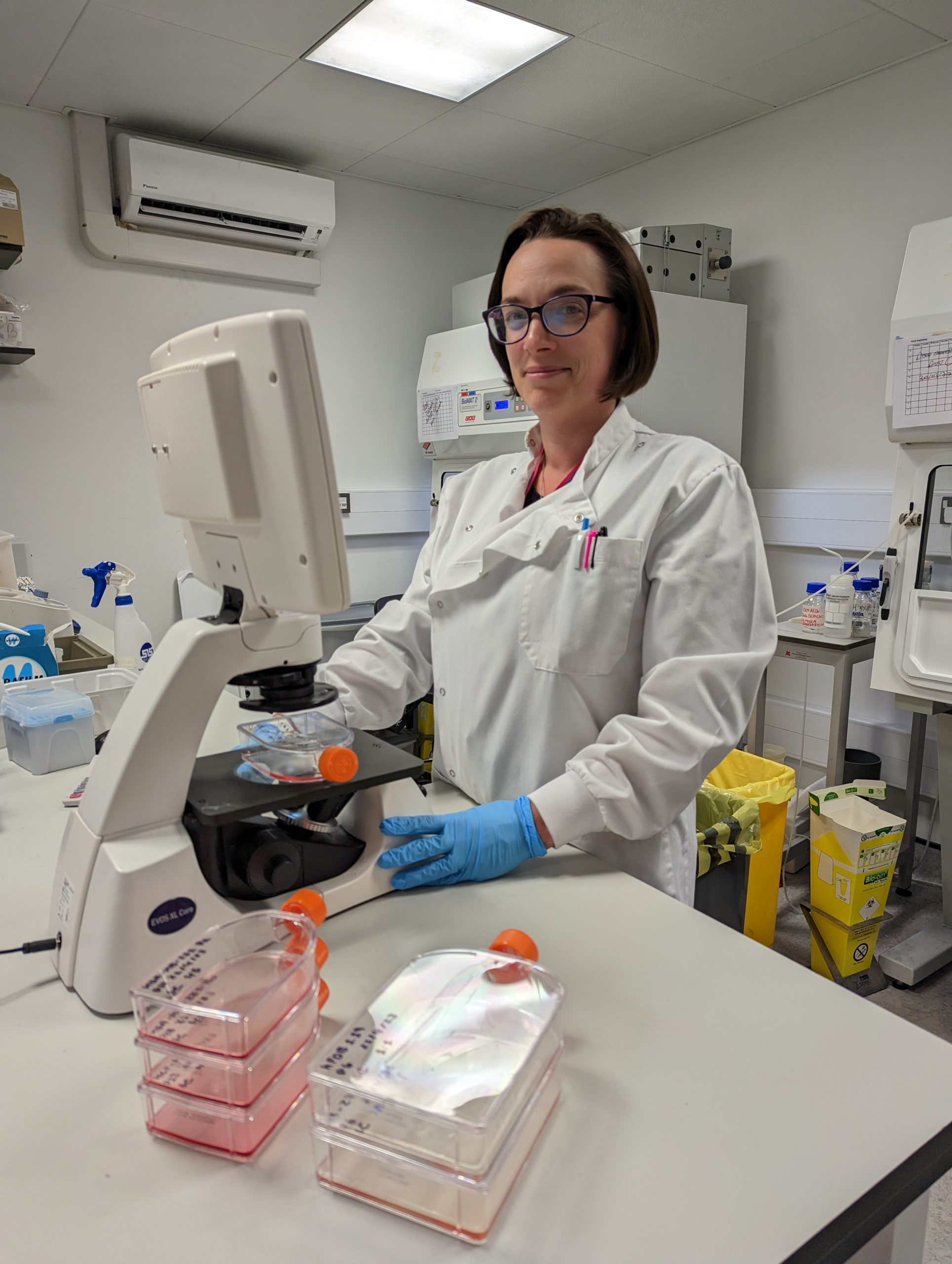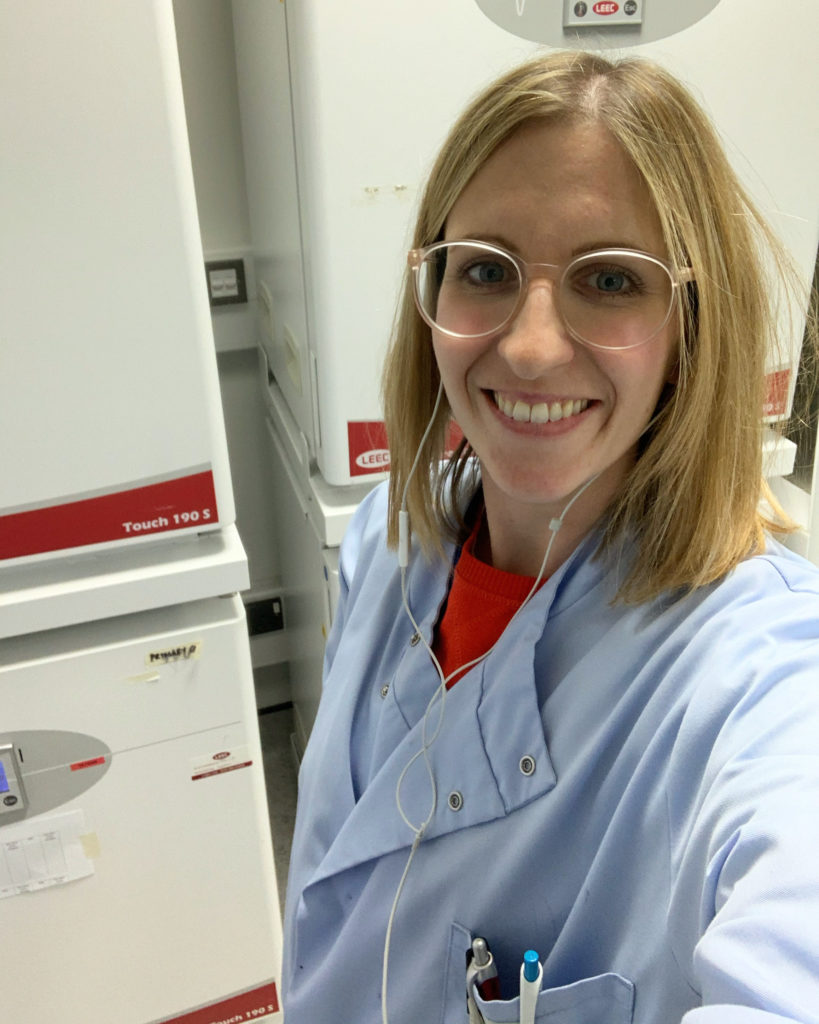
Scientific research is vital for the development of new and improved treatments for secondary breast cancer. But what’s it like to be a scientist working in this area? Dr Hannah Harrison received her PhD in breast cancer research from the University of Manchester in 2009 and has since worked as a breast cancer research scientist in the Manchester Cancer Research Centre. Here, Hannah tells us about her work.
Hi Hannah! Could you tell us a bit about your research?
I study many aspects of breast cancer, from identifying factors that increase risk of developing breast cancer and finding ways to prevent it, to studying invasive breast cancer and its progression to metastasis to other sites within the body.
Metastasis, or secondary disease, is an extremely complicated process in which breast cancer cells must leave their tumour, travel around the body and find somewhere that they are able to survive and grow. This is typically within the lung, bone, liver or brain and is currently incurable. We need to develop good laboratory models of secondary breast cancer so that we understand how, why and when the cells move around the body and this has been a major focus of my research over recent years. This understanding is essential if we are to find ways to stop the growth of secondary tumours at different sites in the body and prevent deaths from secondary breast cancer.
We think that one important stage in metastasis is that the primary tumour in the breast sends out signals to other sites in the body telling them to change, making them ready to accommodate the cancer cells when they arrive. The lab model that I have developed allows us to grow cancer cells in one culture chamber and cells from secondary sites, for example lung cells, in another separate culture chamber. The chambers are linked by tubes and the cells can signal to one another and even move from one “site” to another. We can examine the signals coming from the breast cancer cells, determine what the signals are and what they are telling the lungs to do, and find ways to interfere with this stage in disease progression aiming to stop the breast cancer cells from being able to grow in the lung.
What do we still need to learn about secondary breast cancer so we can develop new treatments?
Most deaths from breast cancer occur as a result of secondary disease. Although we are doing very important work looking at reducing the risk of developing breast cancer and developing better treatments for primary breast cancer, we must never lose sight of this fact. Better understanding of metastatic disease will allow better monitoring following the first diagnosis of breast cancer and allow us to offer better treatment options for those living with metastatic disease and improve their quality of life.
What do you enjoy about your work?
I love that a large part of my job is thinking and questioning and trying out my ideas. There’s nothing better than the feeling of an experiment that works and progresses the field and will lead to real changes for patients. We’re lucky to have a team made up of basic biologists, like me, and clinicians and surgeons who have such different points of view and ways to tackle problems. Together we are making real differences and that feels amazing.
Are there any challenges?
Funding. My research is funded by grants, typically from charities or governmental research councils, and these usually last between 1 and 3 years. This means a large part of my time is spent in the pursuit of money to continue funding research as well as funding myself, so I am here to do the work. It’s an extremely stressful and exhausting part of the job but is a necessity unfortunately.
What’s it like working at the Manchester Cancer Research Centre?
The MCRC is filled with scientists studying many different types of cancer and we meet to present our work and to discuss ideas and plans for taking our work forward. I love working in an environment where we all have one goal, to improve the lives of people living with, or affected by, cancer.
What are your hopes for the future of secondary breast cancer research?
I hope that we can move towards a world where secondary breast cancer is a chronic disease which we know how to treat in a way which allows those living with it to live long and live well.
Thanks Hannah! We look forward to hearing more about your research in the future.

Dr Hannah Harrison was interviewed by our METUPUK member and advocate Dr Rachel Eyre.
